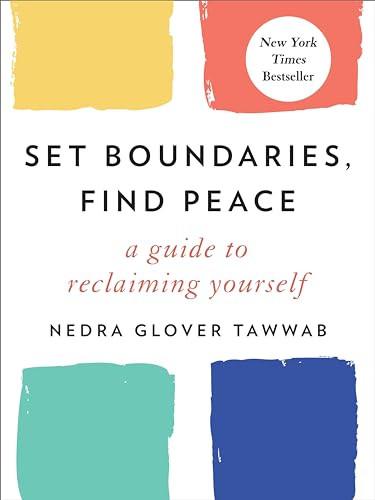instructor Hood's Key Ideas from Set Boundaries, Find Peace
by Nedra Glover Tawwab
Ideas, facts & insights covering these topics:
8 ideas
·1.89K reads
14
Explore the World's Best Ideas
Join today and uncover 100+ curated journeys from 50+ topics. Unlock access to our mobile app with extensive features.
The costs and causes of weak boundaries
Setting boundaries is a way of practicing self-care. By declining requests from others, you can focus on fulfilling your own needs.
Failing to establish boundaries can also lead to negative health outcomes, such as burnout, or exacerbate mental health issues, including anxiety and depression.
Communicating our boundaries isn’t easy, but without it, we set ourselves up for long-term suffering.
43
349 reads
Many people struggle to set limits in certain situations or with certain people.
A history of childhood trauma can underlie the difficulty to set and honor boundaries. Those who’ve experienced childhood trauma frequently encounter physical, sexual or emotional boundary violations as adults; they also tend to overshare, loan money to unreliable people or work too much – all signs of weak boundaries.
40
265 reads
Recognizing violations
In a section focused on identifying boundary violations, attention is drawn to certain behavioral patterns that are frequently not recognized as boundary issues. These patterns include sending mixed signals, guilt-tripping, and codependency.
Emotional boundary violations include a person telling other people how they should feel. Sexual boundary violations occur when a person touches another, makes sexual comments or engages in sexual activity without consent.
Confidence in your boundaries is the cure for self-sabotage.
41
241 reads
Other violations
Violations of material boundaries include treating someone’s possessions carelessly or demanding that a person share belongings. And people who demand that someone drop everything to help them, or call or email excessively, are violating time boundaries. Common boundary violations among friends include pressure to lend possessions or money, expecting advice about romantic distress, giving or receiving unsolicited advice, and neediness.
38
217 reads
Setting limits
Three keys to setting limits and ensuring people respect them:
Be clear, be direct, and don’t try to avoid the discomfort and guilt that often accompany protecting your boundaries.
When you communicate your boundaries, stay calm and be straightforward. State your needs and expectations clearly. Then take action to enforce the boundaries you’ve stated. Don’t allow people to violate them. Difficult individuals might test your limits, question your actions, get defensive or cut off communication – you’ll have to accept these responses as the price of setting boundaries.
44
209 reads
Create it
If someone continually violates your boundaries, reduce your interactions with the person or let the person know you’ll end the relationship if necessary.
Creating healthy boundaries leads to feeling safe, loved, calm and respected.
40
207 reads
Romantic relationship
Express your needs, and don’t expect your partner to fulfill every one of them. Don’t allow little issues to build up and create resentment. If your relationship is healthy, setting boundaries shouldn’t cause negativity or disruption.
Strengthen your boundaries with yourself by meeting your own expectations, such as maintaining healthy financial habits, resting when your body needs it or seeing a therapist regularly. Create boundaries for yourself regarding the use of electronic devices and social media. Turn off news alerts and take scheduled breaks.
40
194 reads
Compassion and insight
A rich understanding of people’s vulnerability and need for connection.
In expressing that need, many don’t realize they protect themselves insufficiently.
The value of the material for people who are experiencing the pain and chaos of porous boundaries will likely outweigh these criticisms.
37
212 reads
IDEAS CURATED BY
CURATOR'S NOTE
For many people, a lack of healthy boundaries underlies anxiety and burnout. How to restore sanity by setting and enforcing limits with family, friends, co-workers and managers.
“
Discover Key Ideas from Books on Similar Topics
9 ideas
The Book
Alan Watts
9 ideas
Can We Talk?
Roberta Chinsky Matuson
21 ideas
The Dictionary of Obscure Sorrows
John Koenig
Read & Learn
20x Faster
without
deepstash
with
deepstash
with
deepstash
Personalized microlearning
—
100+ Learning Journeys
—
Access to 200,000+ ideas
—
Access to the mobile app
—
Unlimited idea saving
—
—
Unlimited history
—
—
Unlimited listening to ideas
—
—
Downloading & offline access
—
—
Supercharge your mind with one idea per day
Enter your email and spend 1 minute every day to learn something new.
I agree to receive email updates
